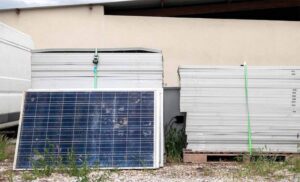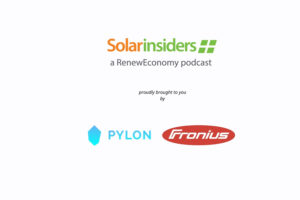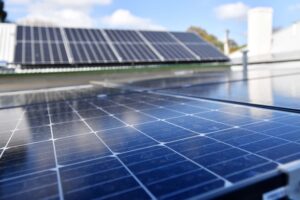 Victoria’s Napthine government has revealed it will scrap the state’s energy efficiency scheme, after a review of the program found it was costing non-participating consumers $50 a year, for less benefit to the environment than projected.
Victoria’s Napthine government has revealed it will scrap the state’s energy efficiency scheme, after a review of the program found it was costing non-participating consumers $50 a year, for less benefit to the environment than projected.
The decision, announced on Wednesday, will see the Victorian Energy Efficiency Target (VEET) – which is estimated to have saved participating households and businesses an average $109 a year on electricity bills – run for one more year, its target reduced from 5.4 million tonnes of CO2 abatement to 2 million in 2015.
However, the decision has been branded as “ideological” and “nonsensical”, amid accusations that the government’s own modelling contradicts its central claim – the reduced 2015 abatement target is shown in the report to cost non-participating consumers virtually nothing – and favours incumbent coal-fired generators over consumers.
“Of all the decisions the Napthine government has made to protect existing coal generators and prevent renewable energy projects from proceeding this is the most ideological and nonsensical,” said Environment Victoria’s Mark Wakeham.
“They are scrapping a scheme that is reducing the cost of living, particularly in low income communities, has created 2000 jobs, and is saving government money in reduced energy concessions. The only winners from this decision are GDF Suez, AGL and Energy Australia who are systematically lobbying governments to protect their polluting businesses.”
Ric Brazzale, board member of the Energy Efficiency Certificate Creators Association, says the report shows the Victorian government has clearly thrown its lot in with the coal-fired generators, noting that its systematic overstating of the costs of energy efficiency and understating of its benefits have resulted in conclusions that “could only be reached if the coal fired generators had written the report themselves.” He estimated net savings of $500 million a year.
Indeed, the government report admits that while “the benefits accrued by consumers participating in the (VEET) scheme outweigh the costs incurred by non-participating consumers… this represents a transfer from energy generators and retailers to these consumers through a loss of profits.”
Introduced in 2008 by the Labor Brumby government, the Victoria Energy Efficiency Target (VEET) aimed to help households and businesses save energy and money by supplying them with efficient electrical devices like compact fluorescent light bulbs and standby power controllers.
Doubled in size in 2011 by the Liberal Baillieu government, VEET is reported to have helped more than 74 per cent of Victorian households and businesses cut their electricity bills by reducing consumption.
But a 2013 review of the scheme, required by legislation, appeared to focus on the negatives, some of which were leaked to, and duly reported by the Herald Sun in March (a tactic that has been used to disparage green schemes by Victoria’s conservative counterparts in Queensland and NSW).
As flagged in March, the much delayed government report on the scheme, released on Wednesday, found that while households and business participating at its current target would save up to $109 a year by 2017 through lower energy bills, the majority, who were not participating, were subsidising those benefits and losing out.
The report also found that about half of the greenhouse gas reductions expected to be saved were actually delivered, and that the cost of the scheme to the economy would be $711 million between 2015 and 2030.
Victorian energy minister Russell Northe said that while the scheme had made significant achievements, it was now adding costs to most households and it was time to develop a new approach.
“The Victorian Government is committed to delivering practical programs that promote energy efficiency to help Victorian homes and businesses keep their energy bill as low as possible,” he said.
But Brazzale argues, however, that scrapping the VEET will leave Victorian households and businesses more exposed power price increases.
“Dismantling the energy efficiency industry as it has now done leaves the Victorian economy extremely exposed to high carbon emitting future,” Brazzale said.
“Significant increases in gas prices and the expected Abbott government scale back on the renewable energy target leaves Victoria extremely exposed. Victoria’s aging and emissions intensive generators will reach the end of their lives at some stage – and we have no plan B.”
The Energy Efficiency Council has also slammed the decision, arguing the VEET was of particular benefit to low-income households.
“The Napthine Government is putting big energy companies’ interests ahead of jobs and families,” said EEC chief Rob Murray-Leach, who labelled the assumptions made in the review as “just insane.”
“They admit that they’re cutting a program that employs over 2,000 people and helps low-income families save energy because it reduces generators’ profits. This decision shows a lack of vision, a lack of leadership, is unfair to families and is economically reckless.”
The government says the VEET will remain until the end of 2015, giving businesses time to adapt. The report predicts that more complex appliances would need to be installed in future, meaning household contributions would be necessary shutting out some low-income families.







